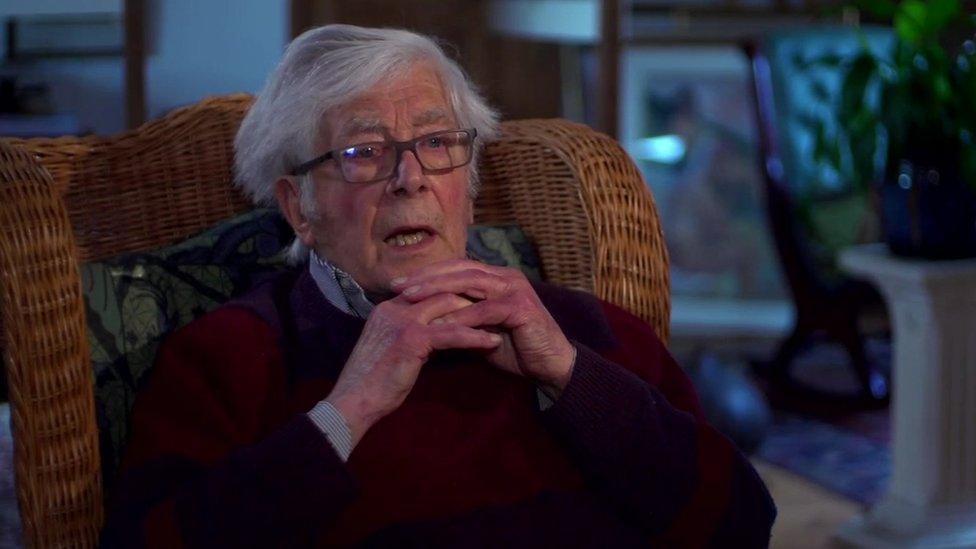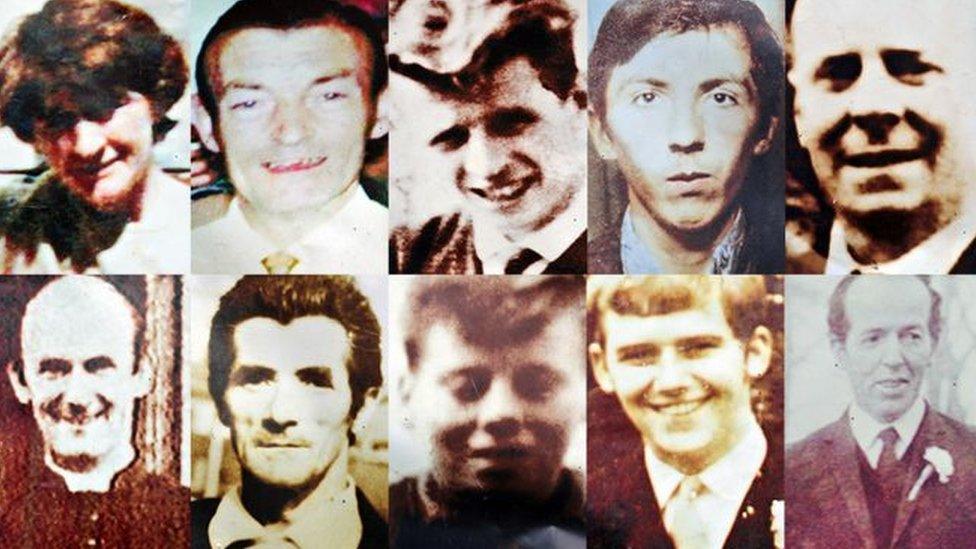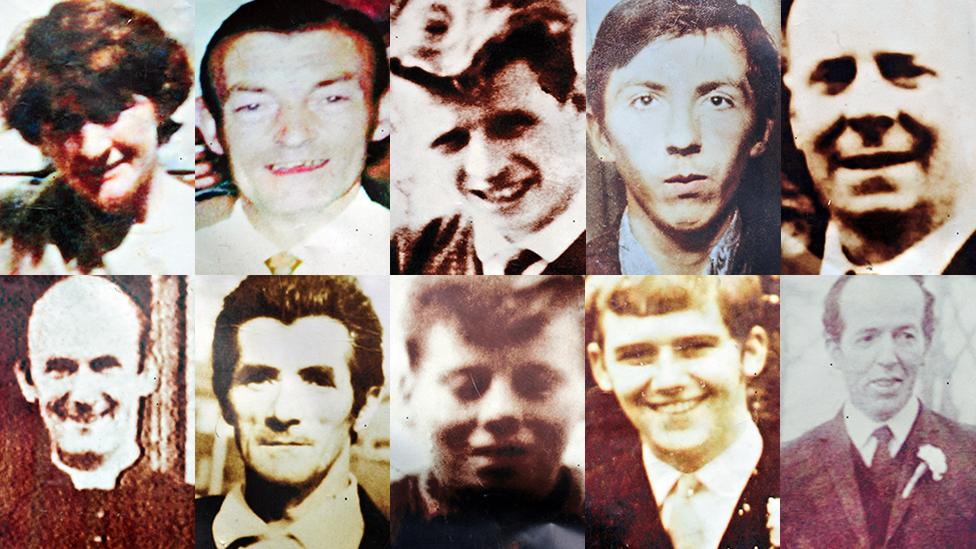Ballymurphy inquest: Senior ex-para 'does not recall deaths'
- Published

Derek Wilford was commander of the 1st Battalion Parachute Regiment
A former commander of the first battalion of the Parachute Regiment says he has no recollection of deaths in Ballymurphy west Belfast in the days immediately after the introduction of internment in August 1971.
The Ballymurphy inquest was hearing a statement provided by Lt Col Derek Wilford.
He commanded 1 Para during the period.
His statement was provided to solicitors acting on behalf of the coroner.
Col Wilford lives abroad and cannot be compelled to attend the inquest.
He is also understood to be suffering from ill-health.
Ten people were fatally shot - including six on one day - in the Ballymurphy area in August 1971 after the introduction of internment without trial in Northern Ireland.
In his statement, Col Wilford referred to the deaths of 10 people over three days in Ballymurphy.
"This comes as a complete surprise to me," he said.
He recalled that his whole battalion had been interviewed after the events of Bloody Sunday on 30 January 1972, but could not remember it having happened after Ballymurphy.
"None of that information came my way," his statement added.
"Had it come my way, it would've been quite serious."
On what became known as Bloody Sunday, 13 people were killed and 15 people wounded.
Members of the Army's Parachute Regiment opened fire on civil rights demonstrators in the Bogside - a predominantly Catholic part of Londonderry - on Sunday 30 January 1972.
After the statement was read out in court, the coroner explained that she had also received a letter from a firm of solicitors acting on behalf of Col Wilford.
In it, they asked that the coroner give little weight to his statement, citing medical reasons why she should do so.
The coroner allowed Col Wilford's statement to be read out in court, but said she would still have to consider what weight she should give to it.
On Wednesday, a military witness had failed to appear before the inquest into the deaths of 10 people in Ballymurphy, west Belfast, in August 1971.
The soldier, referred to as M171, had been subpoenaed to appear on Wednesday at the inquest.
He was due to give evidence about the deaths of Joseph Corr and John Laverty on the Upper Whiterock Road.
A barrister told the court that since the subpoena was issued, the soldier had not contacted the Coroner's Service.
The barrister told the court that the witness had not contacted the Ministry of Defence (MoD) and confirmed that the witness had not presented himself at court on Wednesday morning.
It was further explained that the MoD had made further fruitless attempts to contact M171.
The coroner indicated she would keep the situation under review throughout the day with a view to "next steps" or enforcement.
Previously, another former soldier failed to appear at the inquest.

An inquest is examining the deaths of 10 people killed in shootings at Ballymurphy in August 1971
Later, on Wednesday afternoon, it was explained in court that M171 still had not presented himself at court.
The coroner asked that the necessary enforcement steps were duly commenced.
This has already happened in the case of Soldier M57 who had previously failed to appear at court to give evidence.
'Chain of command'
Earlier, the court heard from M2294, a former adjutant of 1 Para who was on duty during the early days of internment when the shootings happened.
1 Para advanced down the Upper Whiterock Road on the morning of 11 August 1971.
M2294 explained that he spent the time in a mobile command unit vehicle as a watch keeper, and had not been part of the chain of command.
His duties were to monitor the radios, keep a clear idea of the operational and make sure that their commanding officer was properly informed.
As a result, he had not witnessed any of the shootings and had not seen any casualties.
He was able to assist the court in understanding some of the military logs kept at the time.
- Published25 June 2019

- Published11 May 2021
